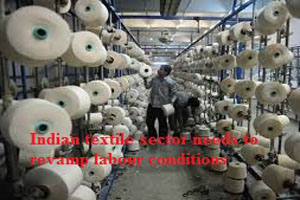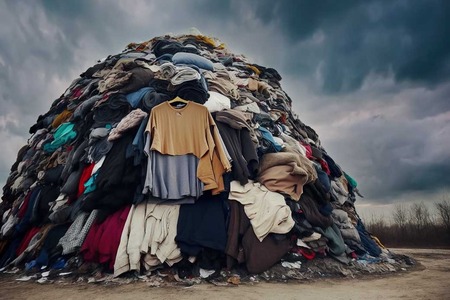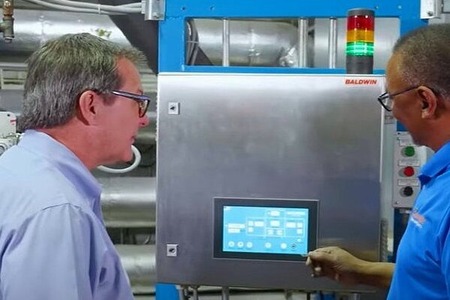
Indian textile sector needs to revamp labour conditions
YarnsandFibers News Bureau 2016-04-22 13:00:00 – MumbaiTaking the example of Apple Inc., which tackled poor wages and working conditions at the factories of its partner Foxconn in China after criticism from consumers among others, the labour conditions in Indian textile is also now on a wide check.
The conditions of garment workers in South Asia have come under sharp scrutiny following the 2013 Rana Plaza disaster in Bangladesh, in which 1,135 workers were killed, many of them employed by suppliers to Western retailers. In India, legislation exists against bonded labour and child labour, but enforcement is weak.
According to Mona Gupta, a senior official at India’s Apparel Export Promotion Council said that the industry has the most invisible supply chain. It is also mostly unorganised, which makes it harder to map and regulate. Domestic consumers should raise their voice. If they insist on buying only ethical products, that will bring pressure on manufacturers.
Estimates of the number of people trapped in forced labour vary. The International Labour Organisation says 21 million people are victims of forced labour globally, while the Global Slavery Index says there are 36 million slaves in the world, half of them in India.
It is estimated by a certain human rights group that the domestic market accounts for more than 40 per cent of the industry’s revenue. Hundreds of small and medium-sized enterprises use forced labour and treat workers poorly, with abuses ranging from withheld salaries to debt bondage.
India is among the largest manufacturers of textiles and apparel in the world, supplying to leading international brands. In and around the southern city of Bengaluru alone, there are some 1,200 garment factories making apparel for global brands.
According to industry experts,global retailers’ efforts to clean supply chains of slave labour and improve labour conditions will have little impact unless consumers in India, Asia’s third-largest economy, demand more ethically produced goods.
Global apparel brands H&M, Inditex, C&A and PVH in January committed to improving the lives of workers in Bengaluru, after a report said labourers lived in appalling conditions and were denied decent wages and freedom of movement.
However, campaigners say the seasonal nature of work in India’s textile industry, the advent of fast fashion and the competitiveness of the business have helped create conditions leading to the exploitation of workers.
In the view of Mona Gupta,there is child labour not just because of a supply-pull factor, but also a demand-push factor. The only way to resolve the issue is to sensitize everyone: businesses, workers and consumers.
Dhananjay Tingal, executive director of Bachpan Bachao Andolan (Save the Childhood Movement) said that unethical practices in the supply chain must be the responsibility of corporations, but corporations first need to accept the problem exists .Corporations must be proactive and engage with the public, as well. The organization has freed more than 85,000 children from various industries.
Market Intelligence
Ask for free sample Report

experience
Customer Base
dedicated team
Countries Served Worldwide









